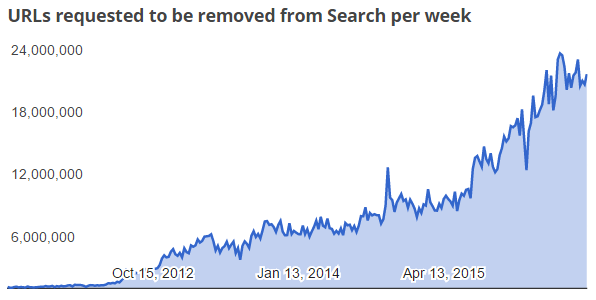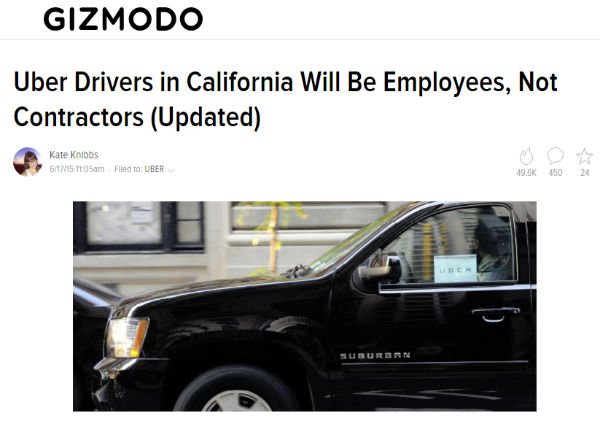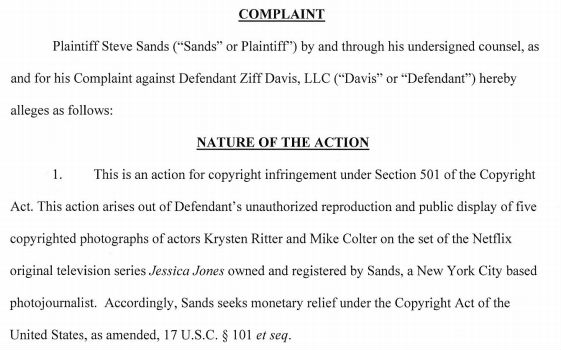 Music piracy in 2016 is a somewhat curious beast. Streaming platforms are readily accessible and the service provided by outfits like Spotify out-perform the vast majority of pirate sites.
Music piracy in 2016 is a somewhat curious beast. Streaming platforms are readily accessible and the service provided by outfits like Spotify out-perform the vast majority of pirate sites.
With many legitimate platforms providing an ad-supported free tier, it’s even difficult to complain about the price. Still, some people prefer to pirate and this infuriates the labels, and understandably so. Sadly, however, their response is to blame people that have nothing to do with that infringement.
After being put under intense pressure by copyright holders, Google now feels obliged to let everyone know what measures it’s taking against this kind of piracy. This week it produced a comprehensive report covering every possible angle. Within minutes the record labels had responded, not with thanks, but with intence criticism.
On a personal level I’d like to think that Google is now pretty pissed off, and this is coming from someone who supports artists with subscriptions to Spotify, Deezer and Digitally Imported, and purchases from Beatport and Juno.
For the millionth time, Google does not engage in copyright infringement, yet faced with a problem they can’t solve on their own, the labels have adopted a strategy of painting Google as the villain. The contempt shown by the labels for a company that is already going way beyond what’s required of it under the law is quite unbelievable.
The maddening reality of it all really hits home when one reads a piece penned by the BPI’s Geoff Taylor and published in MBW this week. It begins with complaints that Content ID doesn’t work as well as it should and he invites Google to up its game.
“Despite its amazing innovations in mapping the Earth and inventing driverless cars, Google hasn’t managed to implement a Content ID system that people can’t easily get around,” Taylor complains.
First, Google had no obligation to make Content ID at all but it did and now artists are $2bn better off. Second, people invent systems, people get around them, everyone knows that. But apparently, Google is partly to blame for that too.
“Of course the fact that Google refuses to remove YouTube videos that show you exactly how to circumvent Content ID doesn’t help,” Taylor adds.
No, it’s not helpful, but what it does show is that Google isn’t prepared to stifle free speech, even if it does find it objectionable. Talking about circumventing Content ID is not a crime, nor a breach of YouTube’s terms and conditions. Those videos should stay up, no matter how annoying.
Also, it’s worth bearing in mind that when looking at any industry demands, history shows us that whatever is offered, it will never, ever be enough. Taylor’s piece demonstrates that with flying colors.
“Google should concentrate its formidable resources on making a Content ID system that is genuinely effective in protecting creators; and then apply a similar proactive system to Google search and its other services.”
Proactively censor existence of content on the web. Right. That should be both easy and completely problem free.
To be fair, it’s obvious why the music industry wants Google to go down this route, but the thought of any third party becoming permanent judge and jury over what we can and cannot see online is bewildering. And that’s ignoring the fact that Content ID works for material Google hosts. Applying that to content hosted elsewhere would be a minefield, if not impossible.
But it doesn’t stop there. Also bewildering is how the labels are trying to shame Google into paying them more.
“This isn’t strictly a piracy issue, but we can’t ignore the fact that YouTube pays 1/16th as much for each of its music users as competing services like Spotify,” Taylor writes.
“It’s time that Google started sharing a fair proportion of the value it derives from YouTube with creators.”
In any other marketplace people simply don’t do business with a company if they don’t like the prices being paid, but apparently the labels are being held to ransom.
That being said, since we’re playing this game of “fair proportions”, consider this. YouTube makes pretty much no money. Does the BPI want a share of that?
But the complaint that is perhaps the most frustrating is that the BPI and others are still complaining that pirate sites are turning up in search results for music content.
Let’s be clear, the most popular pirate sites do not turn up in the first results because they’re all being downranked by Google’s anti-piracy algorithm. This means that sites that most people have never heard of get pushed up the list, apparently above legitimate offerings.
That raises the preposterous notion that the people behind many of these bottom tier pirate sites have better SEO skills than the world’s biggest music companies. That being the case, someone needs a kick in the ass – and it’s not Google.
Finally, Taylor criticizes Google for not going after sites that rip audio content from YouTube videos and convert them to MP3s.
“Although such sites breach YouTube’s terms of service and seem to contradict its business model – by turning ad-supported transient streams into permanent copies – Google continues to point to these sites in autocomplete and to host YouTube videos showing how to use them,” he writes.
Again, the BPI is asking for censorship of content that simply isn’t illegal. But more than that it’s yet again demanding action from YouTube when it could take action itself. If these sites are illegal, why aren’t they being added to the UK’s national website blocking list, for example?
The problem with this continual assault on Google is that it’s not only tiresome but it largely misses the point. Google already does way more than the law requires yet it only has control over content hosted on YouTube. No matter what actions it takes, it simply cannot remove illicit content from the web, it can only make it a bit less visible.
Google can look after itself, but copyright holders should be extremely cautious of treating its many overtures with this level of contempt. One volunteer is worth ten pressed men and one can only guess at how much patience Google has left.
Source: TF, for the latest info on copyright, file-sharing, torrent sites and ANONYMOUS VPN services.

 After years of being branded one of the world’s worst Internet piracy facilitators, social networking giant vKontakte has taken a huge step towards fixing its reputation.
After years of being branded one of the world’s worst Internet piracy facilitators, social networking giant vKontakte has taken a huge step towards fixing its reputation. This week we have two newcomers in our chart.
This week we have two newcomers in our chart. 

 When it comes to online piracy most attention usually goes out to music, TV-shows and movies. However, photos are arguably the most-infringed works online.
When it comes to online piracy most attention usually goes out to music, TV-shows and movies. However, photos are arguably the most-infringed works online.
